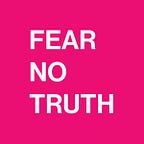True Or False, Every Brand Is A Story Told At Every Touchpoint With Its Market
A brand is an everywhere, always-on narrative that unfolds at every interaction or touchpoint between a brand and its market. This narrative, woven into the very fabric of the brand, tells a story whether the brand intends it or not. Each point of contact — be it through advertising, customer service, product quality, or social media presence — adds a chapter to this story, influencing the brand’s reputation and its ultimate success or failure.
A brand’s story is more than just marketing fluff; it is a critical element of its identity and a powerful driver of its economic value. Just as any compelling story can evoke an emotional response from its audience, a brand’s story can resonate deeply with consumers, creating a loyal customer base. This is especially significant in today’s market where consumers are often looking for authenticity and integrity as much as they are looking for quality and value.
Consider how every interaction with the brand is an opportunity to reinforce its story. When a customer buys a product, the quality of the product, the ease of the purchase, the packaging, and even the after-sales service continue the narrative of the brand. A luxury brand, for instance, tells a story of exclusivity and premium quality not only through its products but through its boutique décor, the demeanor of its staff, and its customer handling policies. Similarly, a brand that positions itself as environmentally friendly must reflect this commitment not just in its products but in its packaging, operations, and partnerships.
The coherence between what a brand promises and what it delivers is pivotal. Dissonance between these can break the consumer’s trust, leading to a negative brand story. For example, if a company claims to value customer satisfaction but has poor customer service, it creates a story of hypocrisy and unreliability. Social media and online reviews have made it easier than ever for such stories to spread and take on a life of their own, potentially devastating a brand’s reputation. Conversely, when there is alignment between a brand’s messaging and its actions, it strengthens the consumer’s trust and loyalty. This alignment authenticates the brand’s story, making it more persuasive and endearing to its audience.
The truth plays a dual role in this everywhere, always-on narrative. On one side, the truth can lead to a brand’s downfall. If a brand’s story is found to be false — perhaps it claims to use organic materials but doesn’t, or it claims to be founded on principles of fairness but engages in unethical practices — this truth can damage the brand irreparably. Customers feel deceived and may react strongly against the brand, not just abandoning it but also dissuading others from patronizing it.
On the other hand, truth can elevate a brand significantly. When a brand candidly acknowledges a mistake and takes concrete steps to rectify it, this truthfulness can enhance its reputation. Customers appreciate transparency and accountability, which can transform a negative situation into a story of integrity and sincerity. Additionally, when a brand consistently lives up to its promises, the truth of its claims reinforces customer loyalty and can attract new customers who are drawn by authentic reports of the brand’s reliability and quality.
In our digital age, where information is ubiquitous and misinformation is rampant, the stakes are higher than ever for brands to maintain a truthful narrative. The rapid spread of information and the ability of consumers to discuss and disseminate their experiences mean that a brand’s story is constantly being written in real-time. Each chapter, influenced by every touchpoint with the market, can significantly alter the course of the brand’s trajectory.
Ultimately, every brand is a living story, and every touchpoint is a chance to influence this story. Successful brands are those that recognize the power of their narrative and manage it carefully, ensuring that their story resonates truth and integrity at every chapter. This is not just a matter of good marketing but of fundamental business strategy, as the truth of a brand’s story has the power to lift it to new heights, or to take it down a path of challenge and adversity.
